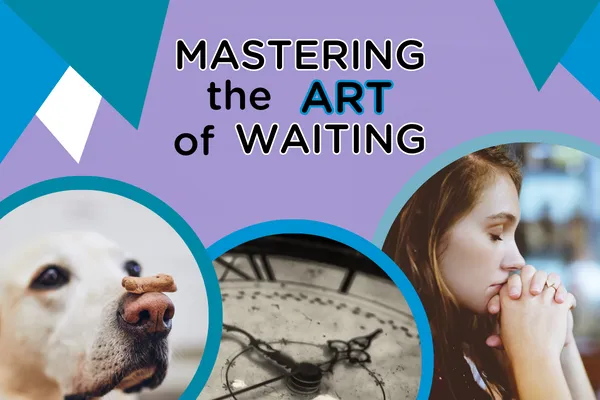General Inquiries: (587) 333-6349 - info@sanostate.com



Mastering the Art of Waiting
“Uncertainty and lack of control during waiting give rise to the formidable emotion of worry.” - Blake Ausmus
Introduction
The waiting game, a phenomenon we're all too familiar with, often introduces a myriad of challenges. It forces us to straddle the delicate balance between optimism and pessimism. While anticipating the best, we brace ourselves for the worst and can find ourselves dwelling more on the negative aspects. This cautious approach serves as a mental safeguard, preparing us for potential setbacks or worst-case scenarios. However, dwelling in this negative mindset has its costs. To maintain our mental well-being, it's crucial to counteract this negativity.
The Psychology of Waiting
Waiting is a universal experience, yet some seem more adept at navigating it than others. It's as if some possess the gift of letting go, effortlessly avoiding the worries that can consume our thoughts during these periods. However, even for those people that this doesn’t happen so naturally for, they can learn to assess and control their anxieties. With effort and practice, we can learn to better manage our thoughts and emotions during these inevitable pauses in life.
Unpacking the Stress of Waiting
Two main ingredients—uncertainty and lack of control—conspire to create a powerful force that makes waiting a stressful experience. Uncertainty prompts our minds to conjure various scenarios, and the mere act of thinking about them triggers genuine emotions. Simultaneously, the perceived lack of control heightens stress, activating our sympathetic nervous system. Unfortunately, the physiological response intended to take control of a situation is unhelpful when we're in a state of passive waiting.
The Evolution of Worry
Uncertainty and lack of control during waiting give rise to the formidable emotion of worry. Worry, inherently future-oriented, entangles us in repetitive thoughts often distorted by irrational fears. Managing worry is crucial, as it serves a purpose by bringing discomfort, motivating us to improve a situation. However, allowing worry to persist unchecked can lead to unnecessary distress.
Proactive Waiting
Much of life involves waiting, and it's time to learn how to do it skillfully. To combat worry during waiting, we must scrutinize our thoughts and the time we spend dwelling on them.
Analyzing Thoughts: Record your thoughts while waiting and objectively analyze them. Often, observing our thoughts reveals their irrationality, helping us regain control.
Time Management: Limit the time spent ruminating on waiting-related thoughts. Effective distraction techniques can aid in this process.
Examples
Waiting at a traffic light: Instead of viewing it as a waste, use the time for a mindful moment or to enjoy a song on the radio.
Waiting for medical results: Rather than succumbing to worst-case scenarios, acknowledge the potential issue and focus on positive actions after receiving the results.
Additional Tips for Waiting
Plan your schedule to minimize needless waiting time.
Engage in social interactions while waiting to prioritize your mental health.
Combat indecision with a touch of impulsivity - make decisions to avoid prolonged waiting.
Conclusion
Waiting is an inevitable part of life, and mastering it involves understanding our thoughts and effectively managing our time. By implementing these strategies, we can turn waiting into a skill, enhancing our overall well-being and showcase resilience in the face of uncertainty.
If this is an area of life where you could use support, please click HERE to connect or call 587-33-6349. 💙
Disclaimer
Our content is for informational and educational purposes and is not a replacement for professional advice, diagnosis, or treatment. If you're facing mental health concerns, please seek help from a qualified professional for personalized guidance. Every individual's situation is unique, so use the information here at your discretion. While we strive for accuracy, the field of psychology is ever-evolving, and our content may not always reflect the latest research. Please prioritize your privacy by avoiding sharing personal information in comments or interactions. Your well-being is our top concern, so use our content for educational purposes, but remember to rely on professionals for your specific needs.
